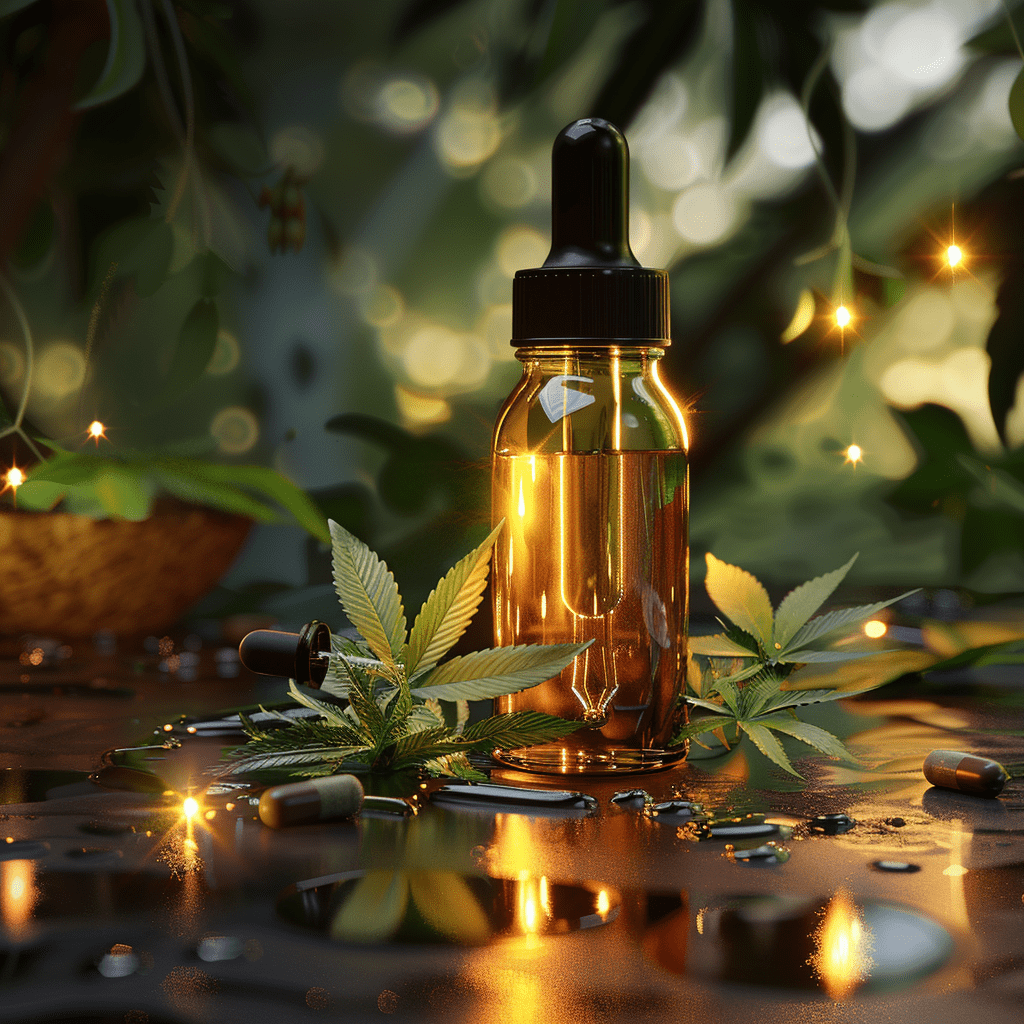CBD oil in Australia has specific side effects that must be known before use. CBD is regarded as highly safe but not without risk. Understanding these risks helps you take suitable precautions.
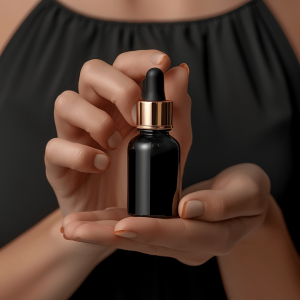
CBD oil has been scientifically proven to be well tolerated, non-addictive, non-psychoactive, and has minimal risk of harm. Yet some individuals can be susceptible to CBD’s side effects.

Certain groups shouldn’t ever use CBD oil or similar products, particularly those who are pregnant, immunocompromised, or taking medication.
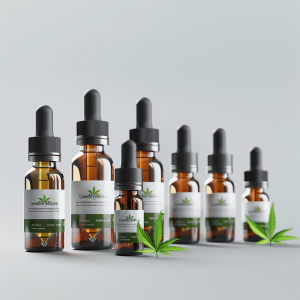
Learn more in our 101 guide about the side effects of CBD oil before you buy it in Australia. We’ll give you insights on using this natural product safely and the precautions you can take to avoid health risks.
Contents
Common Side Effects of CBD Oil
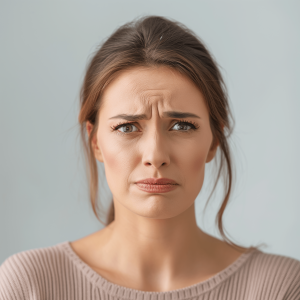
Several CBD oil side effects can occur at any point but are most likely noticed in the first few weeks of use.
Dry Mouth

One of CBD’s most commonly reported side effects is experiencing a dry mouth. This occurs because cannabinoids activate the cannabinoid receptors in the saliva glands, decreasing saliva production. However, there are ways to alleviate this side effect. Firstly, increasing fluid intake can help keep you hydrated and stimulate saliva production. Using gum, lollies, or lozenges can also help stimulate saliva production. If you find that the dry mouth persists even after trying these methods, adjusting your dosage levels or product selection may be necessary.
Stomach Aches and Diarrhoea

Another CBD oil side effect is gastrointestinal distress. Stomach aches, bloating, mild nausea, and diarrhea can occur from use. However, these are usually due to intolerance to a product’s carrier oil. These carriers are often allergens for some people and trigger intolerances. This can cause allergic reactions and side effects. Pure CBD, on its own, rarely has any side effects. To avoid digestive side effects, try to learn whether you have an allergy to a carrier. In these cases, you can try alternative CBD products in Australia, such as sprays, strips, or sublingual, which bypass the gut while still delivering CBD. If side effects persist or recur, you should explore lowering dosages or trying alternative products.
Drowsiness or Lethargy

Some users find they become tired, lethargic or fatigued as a side effect of CBD oil use. Usually, this is only experienced at very high dosage ranges. CBD is naturally anxiolytic and helps to lower stress by calming users. Because of its interactions with cannabinoid receptors in the brain and CNS, it can promote parasympathetic nervous system (PSNS) activity. The PSNS response is associated with calmness, rest, relaxation and recovery. However, if too much CBD oil is consumed, it can cause drowsiness and lethargy. In some people, it can even affect motor function. If you experience this, avoid driving or operating machinery. Try to time your dosages before bedtime to take advantage of CBD’s calming qualities without causing daytime fatigue.
Nausea
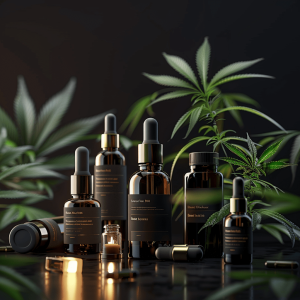
Feeling nauseous can occur when using CBD oil. Everyone’s body is different, and some people don’t tolerate cannabinoids well. Uncomfortable sensations of nausea or headaches can occur but usually pass. The risk of nausea is higher if your dosage is too high or your product is contaminated. You need to consume CBD with food, lower your dose or change products to avoid this side effect. As a beginner, you should start with low doses of 150mg daily or less of CBD to gauge your tolerance. Try building up your tolerance by incrementing dosages over time. This will prevent nausea by giving your body time to adjust.
Anxiety or Mood Changes

Despite being anxiolytic and suppressing anxiety in most users, some people do report elevated anxiousness or mood shifts when taking CBD oil. There are a few potential causes for this. Firstly, high CBD doses may overwhelm some people due to side effects, which can lead to worry and anxiety. Taking too much of any cannabinoid can be a source of angst if you are feeling nausea or stomach issues. Controlling doses carefully and monitoring your response is essential.
The quality of your CBD oil can also play into it, causing anxiety. Many CBD products either contain THC directly due to mislabelling or are contaminated with THC. This is a psychoactive cannabinoid from cannabis that is known to cause anxiety. It can also worsen any existing anxiety, depression or paranoia. If you’re already anxious and inadvertently consume THC, it is likely to worsen your symptoms. Avoid any products that contain THC or low-quality CBD products that are more likely to be contaminated with it.
Dizziness

CBD is a natural compound with numerous health benefits. However, it’s important to note that CBD oil can cause headaches or dizziness for some. This is because it is a vasodilator. It can cause blood vessels to expand, leading to decreases in blood pressure. As a result, some people may experience feelings of lightheadedness or dizziness after taking CBD oil. This happens because of the changes in blood flow caused by vasodilation.
To avoid these side effects, it’s recommended to start with small doses of CBD and gradually increase the amount until you find the sweet spot that works for you. It’s also important to consult your doctor before taking CBD oil in Australia. The importance of this is exaggerated if you have any underlying medical conditions or are taking existing medications. If you experience persistent symptoms of lightheadedness or dizziness, it’s best to stop taking the product and seek medical attention.
Appetite Changes

Many people experience shifts in their appetite as a result of taking CBD oil. Both increases and decreases in appetite have been observed and reported in different people. How this side effect shows up, if it occurs, is dependent on the individual. Monitor for changes if you’re taking CBD and ensure you maintain or adjust your food consumption as needed to keep healthy.
Allergic Reactions

Some people are allergic to cannabinoids or carrier oils contained in CBD tinctures. Allergies can manifest as hives, itchiness, breathing troubles, redness or other similar inflammatory signs. Like other allergies, if you experience a severe reaction, seek medical help immediately.
Avoiding this can be challenging. You may need to troubleshoot through elimination to figure out what you’re allergic to based on ingredients contained in different CBD oils in Australia. It could be that you are allergic to a specific carrier oil type, for instance, and not CBD itself. Trying other products and assessing allergic reactions can enable you to ascertain and eliminate the cause.
What is CBD Oil?
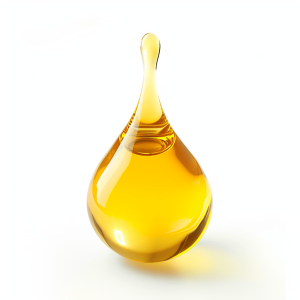
CBD oil is a substance extracted from the cannabis plant and then mixed with a carrier oil like MCT or olive oil. It offers therapeutic effects that support better well-being. It can help reduce anxiety, inflammation, depression, pain and support better sleep. CBD products can be found in tinctures, vapes, capsules, sprays, edibles, and creams.
One of the other primary cannabinoids is tetrahydrocannabinol (THC), which is psychoactive and is responsible for the feeling of euphoria that is commonly associated with cannabis use. On the other hand, CBD is non-psychoactive. You can now buy CBD oil in Australia after it was made legal recently. Because of this, its popularity has seen immense increases recently.
What Causes CBD’s Side Effects?

Every individual has a unique biochemistry, allergies, and responses to cannabinoids, which can cause adverse reactions in some people. Some people may not tolerate the effects of CBD oil due to an underlying health condition or immunocompromised status. They may also be in at-risk groups such as pregnant and elderly individuals. Additionally, existing medications can interact adversely with CBD, leading to unwanted side effects.
While some people may never experience side effects, even at high doses, others could experience allergic reactions even with small amounts of CBD oil. It’s impossible to predict how an individual will respond or what their sensitivity is until they try it.
How Common Are CBD Oil Side Effects?

Side effects associated with CBD oil use are rare, even when high doses are consumed. These side effects are generally mild and temporary and can be resolved by discontinuing CBD products. However, it is worth noting that CBD side effects are more likely to occur with higher doses and more frequent use, as with any other bioactive compound. Despite this, most studies have shown that the incidence of side effects is very low.
Is CBD Oil in Australia Safe?

Numerous studies have been conducted to establish the safety of pure CBD in both human and animal models. These studies have consistently found that CBD oil is perfectly safe to use and that there are no significant health risks associated with it. Whether conducted for specific cannabinoids or general trials and reviews, the conclusion has remained the same. Moreover, the safety of CBD has been established at both high and low doses.
One of the most significant studies on this topic was undertaken by the World Health Organisation in 2018. Its health department conducted an extensive analysis and evaluation of the safety of CBD in the human body. Large-scale reviews were conducted to investigate potential side effects and risks. The organization concluded that almost all individuals can tolerate CBD oil and that it is not addictive. The WHO is responsible for providing guidelines on the safety of health products, usage recommendations, and the risks of side effects. Their primary warning about using CBD oil was its potential interaction with other medications, which could lead to liver problems.
A separate 2017 meta-analysis by the Cannabis and Cannabinoid Research journal found CBD had a robust safety profile. They did note that longer-term safety studies have not been performed on CBD to test for issues like immune system changes and genotoxicity.
Can You Overdose on CBD?

It’s implausible to ever overdose on CBD. It is non-toxic and is safe even when taken in large amounts. However, taking excessive amounts of CBD oil can cause negative experiences that might be considered an “overdose” in terms of exceeding the tolerable dose for an individual.
It’s been observed that in adults, doses of CBD above 1000mg per day are well tolerated. Nevertheless, it’s essential to be cautious while consuming CBD oil. Commonly, CBD oil in Australia or other places is mislabeled. The seller may inaccurately state the product’s strength on its label. This can create dangers for users who end up taking the wrong quantities. It underscores the need to always verify a seller and their labelling accuracy prior to shopping for CBD products.
How Long Do Side Effects Last?

While it is rare that any long-term side effects will occur with CBD oil use, it is possible in some cases.
Short-Term Side Effects of CBD

Most CBD side effects resolve themselves within minutes or hours. After several hours of use, CBD is fully metabolized and cleared from the body. Thus, it is recommended that people take a break from using CBD oil regularly to allow the body to recover and avoid side effects. It can also help minimize tolerance to improve the benefits of CBD.
Long-Term Side Effects of CBD
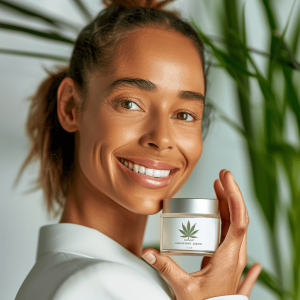
Long-term side effects are very rarely reported when taking CBD. If these occur, they are more than likely caused by contaminants or toxic additives that have made their way into a low-quality product. Solvents, heavy metals, artificial ingredients, pesticides and other toxins are sometimes found in products with poor manufacturing standards or ingredient quality. These can trigger allergies, cause inflammation, and often damage the kidneys or liver, leading to long-term side effects.
Additionally, mixing CBD oil with existing pharmaceutical medications could cause long-term side effects. CBD can suppress particular enzymes produced in the liver and used in the body’s natural detoxification processes. Always check with your doctor before using CBD if you have existing medications.
Who Should Avoid Taking CBD?
Although CBD is well tolerated and has a low risk and severity of side effects, some individuals are at higher susceptibility to harm and should avoid using it at all. Side effects can develop into potential health dangers if you have specific characteristics that put you at risk. Three groups should particularly avoid using CBD oil altogether due to this.
Pregnant Women

Pregnant women should avoid using CBD. This is because their babies are susceptible to toxins and harm from cannabinoids. When you conceive, the nutrients you consume get passed onto the unborn infant via the umbilical cord. Unfortunately, this also applies to contaminants from poor-quality CBD oil. Breast milk can also pass these onto the child, which may endanger them.
Even if your product is pure, research has yet to confirm CBD’s effects on babies. It’s not known whether any amount of CBD is safe to expose a newborn to. We advise waiting until your baby is born before you use it. Even then, use caution and check in with your doctor first.
Immunocompromised

Some individuals with weakened immune systems are at a higher risk of severe side effects from CBD. Extra care must be taken when taking CBD or other medicines when you have existing liver problems or immune system issues. For example, people on chemotherapy medications have weakened immunity and are more exposed to liver complications from CBD due to the medication they take. If you have a chronic disease, organ impairment, or an immune problem, avoid using CBD. This will also help you avoid any unintentional adverse medication interactions.
Existing Medications

The most common and high-risk danger in using CBD oil in Australia is potential interactions or unintended side effects when it is mixed with other medications already being used. This is a considerable risk for many because CBD is often used therapeutically in tandem with other treatments. Those affected by high blood pressure, arthritis or chronic inflammation may already take pharmaceutical medicines to treat their condition.
Pharmaceutical drugs like blood thinners are processed via the liver, which is responsible for detoxifying them. The liver produces the P450 enzyme that breaks down the toxins these products contain. CBD also must pass via the liver and be processed by it. Harmful metabolites in your liver that impair P450 can accumulate when mixed with medication. While unlikely, this can cause poisoning in worst-case scenarios.
How to Safely Take CBD Oil

Although it is not possible to eliminate all side effects risks with CBD oil, there are ways you can minimize the likelihood of experiencing them.
Dosage & Product Strength
The amount you consume significantly contributes to CBD oil’s side effect risks. Product strength, dosage and frequency of usage can all impact whether you experience side effects. For instance, if you’re using a product that is too strong for your needs and incidentally consuming greater concentrations of CBD than you should, your risk of side effects will be much higher.
Similarly, dosing incorrectly and drinking too much CBD oil too often can overwhelm your body and lead to negative experiences. In both cases, this is easily solved by carefully planning out your dosages and frequency of use. Letting your body and endocannabinoid system adapt to CBD and become accustomed to it before you ramp up dosages or product strength is essential to avoiding side effects.
Product Quality

Another easy way to avoid side effects is by using high-quality CBD oil in Australia. Low-quality products are at higher risk of triggering allergies and side effects and causing unintended detrimental effects because they’re frequently contaminated or tainted with toxins. They’re also at higher risk of containing THC, which has much higher side effect risks than CBD and can worsen mental illnesses.
Seek third-party lab results for your product so you know what it contains. This is often posted on the retailer’s website. Look for reviews that indicate the product is effective and users got what they expected. Quality products use quality controls to prevent contamination and minimize THC content.
Subar CBD products frequently contain contaminants or toxins. Contamination might result from the bottle or container used to store the CBD product, or it can also occur from poor quality control. These can lead to pesticides, bacteria, or mould in CBD oil. Solvents like ethanol, a by-product of solvent extraction, often contaminate low-quality CBD oil. If consumed, any of these can negatively affect your health. Verify the CBD shop you’re purchasing from in Australia and check they have quality controls.
CO2 Extraction
If you are buying CBD oil in Australia, opt for gas-extracted products to minimise side effect risks. CO2 or gas extraction is one of the safest and cleanest ways to extract cannabinoids from cannabis resin. This method uses only CO2 gas during extraction, eliminating the contamination risk with solvents.
The process involves pulling cannabinoids from the resin at extreme heat and pressure ranges. It eliminates potential contaminants like bacteria, dust, or fungi. Additionally, because CO2 extraction doesn’t use solvents like ethanol, there is no risk of solvents mixing with and contaminating your CBD product.
Organic Certified Products
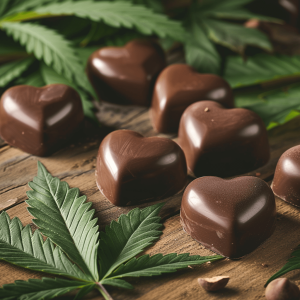
When selecting a product that contains CBD, it’s always a good idea to look for those sourced from organically grown and harvested cannabis. Organic farming practices are free of herbicides, chemicals, and pesticides, significantly reducing the likelihood of these harmful chemicals being passed onto the oil extracted from the plant.
Organic CBD products are considered higher quality, posing a lower contamination risk from heavy metals or other soil contaminants. By choosing organic CBD oil, you can rest assured that you are using a safer product for you and the environment.
Monitoring and Adapting Dosage Approach
As you use CBD oil, monitoring your feelings and whether any side effects are occurring is essential. Observe for any mood or gastrointestinal shifts. Consider altering the dose or product or stopping altogether if you observe side effects or adverse reactions. Experimenting with lower doses or differing products may resolve the issue. Controlling your use of CBD is always an easy way to stem side effects.
Conclusion

CBD oil has side effects but is still very safe for most people. CBD’s side effects are rare and minor. Some of the most commonly reported side effects include nausea, dry mouth, anxiety, and drowsiness. If you experience these side effects, you can change your dosage or switch to a different CBD product. If the side effects persist, it may indicate a more significant problem. Check-in with your doctor if this occurs.
It’s nearly impossible to overdose on CBD, but taking too much can lead to uncomfortable side effects.
It is important to note that CBD is not suitable for everyone. Pregnant women, individuals with immune or organ problems, individuals taking prescription medications and children should avoid it. To minimize the risks of side effects, you should scrutinize the quality of the CBD product that you are taking in Australia. Ensure you obtain lab results for your product, buy organic, dose conservatively and monitor your reactions carefully.
References
- Geneva (2018). CANNABIDIOL (CBD) Critical Review Report Expert Committee on Drug Dependence Fortieth Meeting. [online] Available at: https://www.who.int/docs/default-source/controlled-substances/whocbdreportmay2018-2.pdf?sfvrsn=f78db177_2.
- Iffland, K. and Grotenhermen, F. (2017b). An Update on Safety and Side Effects of Cannabidiol: A Review of Clinical Data and Relevant Animal Studies. Cannabis and Cannabinoid Research, [online] 2(1), pp.139–154. https://www.ncbi.nlm.nih.gov/pmc/articles/PMC5569602/
- Huestis, M.A., Solimini, R., Pichini, S., Pacifici, R., Carlier, J. and Busardò, F.P. (2019). Cannabidiol Adverse Effects and Toxicity. Current Neuropharmacology, [online] 17(10), pp.974–989. https://www.ncbi.nlm.nih.gov/pmc/articles/PMC7052834/
- Campbell, C.T., Phillips, M.S. and Manasco, K. (2017). Cannabinoids in Pediatrics. The Journal of Pediatric Pharmacology and Therapeutics, [online] 22(3), pp.176–185. https://www.ncbi.nlm.nih.gov/pmc/articles/PMC5473390/
- Verywell Mind. (n.d.). The Potential Side Effects of CBD. [online] Available at: https://www.verywellmind.com/potential-side-effects-of-cbd-5072819.
- CBD, Z. (n.d.). Can You Overdose on CBD? Everything You Need to Know. [online] Zebra CBD. Available at: https://zebracbd.com/blogs/cbd-health-wellness/can-you-overdose-on-cbd-everything-you-need-to-know
- Discover, T. (2024). Understanding the Potential Side Effects of CBD Oil – Exploring the CBD Oil Side Effects. [online] Seattle Met Discover. Available at: https://www.seattlemet.com/discover/cbd/cbd-oil-side-effects/
- Ph.D, D.S.P. (2019). Potential Contaminants in CBD and THC Oils. [online] News-Medical. Available at: https://www.news-medical.net/life-sciences/Potential-Contaminants-in-CBD-and-THC-Oils.aspx
